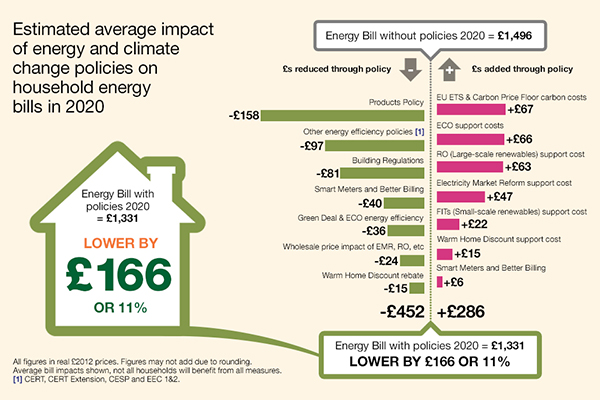 As the rush to make Britain greener, and reduce fuel bills, gathers pace the effect of ECO Funding is becoming apparent in people’s homes. Of energy saving measures that have been installed in British households a staggering 98% have been through the ECO Fund. Coincidentally, the release of these figures came when speculation was rife as to whether or not the initiatives would be scrapped.
As the rush to make Britain greener, and reduce fuel bills, gathers pace the effect of ECO Funding is becoming apparent in people’s homes. Of energy saving measures that have been installed in British households a staggering 98% have been through the ECO Fund. Coincidentally, the release of these figures came when speculation was rife as to whether or not the initiatives would be scrapped.
The ECO (Energy Companies Obligation) Fund was brought in by the British government to help improve energy efficiency for fuel poor families, and for homes in isolated areas. The UK energy industry is compelled by law to offer the required funds, and so ensure that customers can, where necessary, benefit from a variety of energy efficiency measures, which include free insulation and free boiler installation.
According to The Guardian, Greg Barker, the Energy and climate change minister, stated that the ECO Fund and the Green Deal had been successful so far. Mr. Barker was quoted as saying that over 270,000 properties had benefited from the two initiatives, and that this was a sign that Britain’s homeowners were “serious” about increasing the heat in their homes and with “taking control of their energy bills.”
UK Green Building Council’s Paul Green was not so enthused by the figures, however. He pointed out that there was a massive difference between the success of the ECO Fund measures compared to that of the Green Deal.
The intention of both the ECO Fund and the Green Deal is to bring down energy bills. But whereas the ECO Fund is free, because energy companies provide the funds, the Green Deal is either paid for by the customer in full or through a loan which is paid back by accumulated energy bill savings. Both can benefit from the Green Deal Cashback. For now, though, both initiatives will remain as they are.
It’s clear that the ECO Fund is working better than the Green Deal at the moment, and some changes may be necessary to make the latter more popular. With rising energy prices a constant topic for debate, the two initiatives will, no doubt, continue to be examined over the coming years.
 ‘We expect the new branch to take the expertise that A&M Energy Solutions has in the installation of insulation and providing energy advice to a wider target market place in the UK, including homeowners, contractors and private landlords’, stated Branch Manager Mike Grant.
‘We expect the new branch to take the expertise that A&M Energy Solutions has in the installation of insulation and providing energy advice to a wider target market place in the UK, including homeowners, contractors and private landlords’, stated Branch Manager Mike Grant.


 As the rush to make Britain greener, and reduce fuel bills, gathers pace the effect of ECO Funding is becoming apparent in people’s homes. Of energy saving measures that have been installed in British households a staggering 98% have been through the ECO Fund. Coincidentally, the release of these figures came when speculation was rife as to whether or not the initiatives would be scrapped.
As the rush to make Britain greener, and reduce fuel bills, gathers pace the effect of ECO Funding is becoming apparent in people’s homes. Of energy saving measures that have been installed in British households a staggering 98% have been through the ECO Fund. Coincidentally, the release of these figures came when speculation was rife as to whether or not the initiatives would be scrapped.